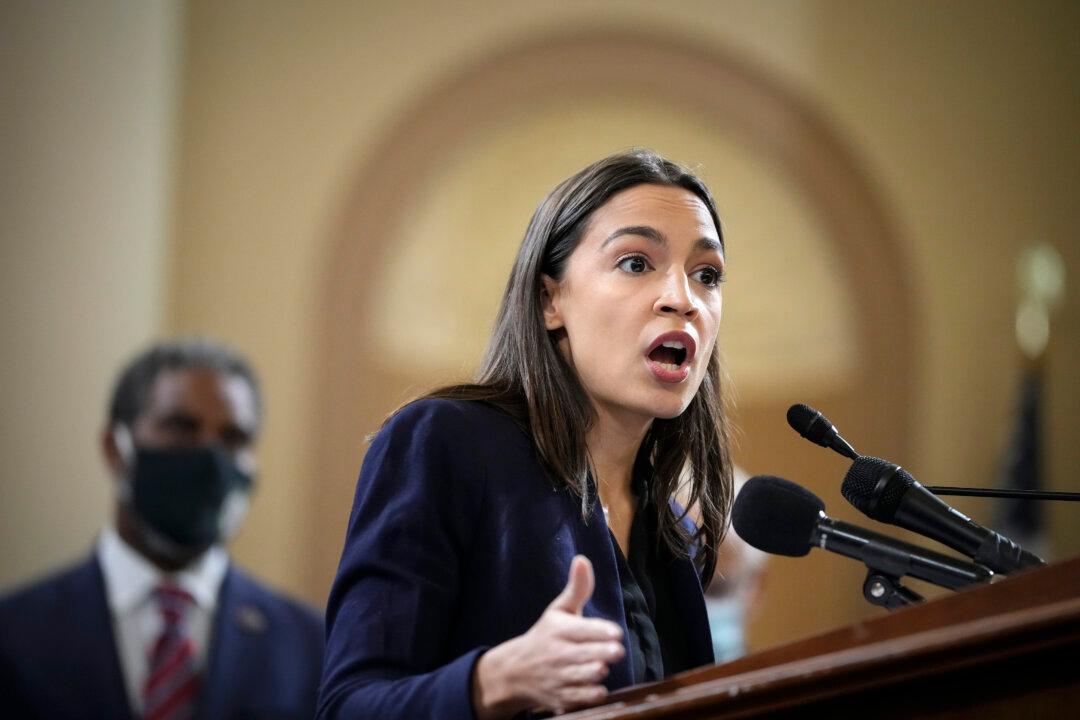Rep. Alexandria Ocasio-Cortez (D-N.Y.) in a video posted to her Instagram account took credit for blocking a GOP effort to pass a bill to supplement the protections for Supreme Court (SCOTUS) justices and their families.
House Minority Leader Kevin McCarthy (R-Calif.) asked on the House floor for unanimous consent to take the bill from House Speaker Nancy Pelosi’s (D-Calif.) desk, but the measure was blocked, so members could not vote on the legislation.





